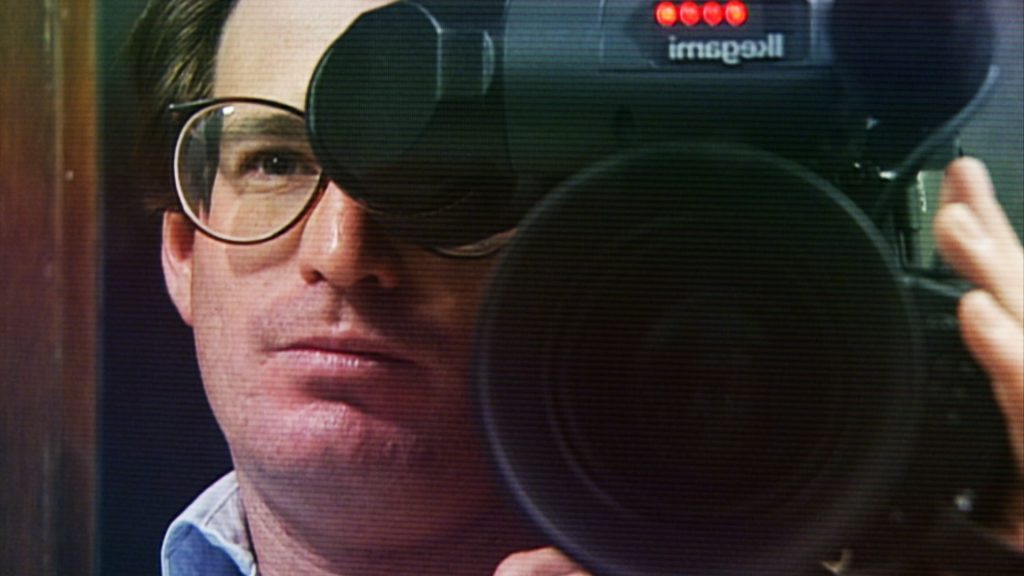Read also:
How to Watch FX Live Without CableHow To Watch AMC Without CableHow to Watch ABC Without CableHow to Watch Paramount Network Without CableMatt Yoka’s documentary snaps a picture of a city — and a family — in transition.
(This review is part of our coverage of the 2020 Sundance Film Festival.)
(Editor’s note: as one of the film’s major subjects, Zoey Tur, is a transgender woman whom we see both before and after her transition, we will defer to Zoey’s stated preference in the film to refer to pre-transition Zoey as “Bob” (he/him).)
The ’80s and ’90s were a tough time for LA — Rodney King, the LA riots, wildfires, the OJ Simpson trial. Southern California seemed at once the beating cultural heart of the country and a walled-in prison slowly crumbling on itself. But of course, it was catnip for a news media that increasingly favored “if it bleeds, it leads” content and the increasingly blurred lines between journalism and paparazzo. LA was also the home of helicopter news dispatches; since the city was so spread out, reporters relied on choppers to get to a fire, shooting, or crash quickly and grab heart-stopping footage they could sell to outlets.
Two of the most prominent figures in this realm of journalism were real-life couple Bob Tur and Marika Gerrard, subjects of Matt Yoka‘s Whirlybird, a film which parallels their rise and fall in the LA news scene with the interpersonal turmoil they experienced in the cockpit. The results are decidedly gripping, even as it occasionally bites off more than it can chew.
Yoka, a veteran of documentary shorts for Vice and elsewhere, smartly structures his feature-length debut with an inkling that the Turs are not together anymore. Bob, in the intervening years, has transitioned to Zoey, and talking-head interviews with Marika and their two kids (MSNBC’s Katy Tur and brother James) tease at an as-yet-unresolved rift between them. From there, Yoka backtracks through reams of archival footage, culled from both the Turs’ news helicopter footage and Bob Tur’s near-constant videotaping of his home life, to paint a picture of a family drawn up in ambition.

From the opening minutes, “Bob” Tur reveals himself to be a figure of naked ambition and intense anger issues to go along with it; he’s confrontational and dedicated, which shoots him to the top of the business even as the always-on-call nature of his job forces them to sacrifice important family moments. It also strains their marriage; the two met and fell in love chasing down news stories in the car, but the pressures of performance and Bob’s perfectionism lead him to take out his frustration on Marika in spurts of horrifying invective. Yoka smartly refuses to shirk from moments where the cockpit becomes a metal cage of verbal (and sometimes physical) abuse, a snapshot of the pressures this business — and a toxically masculine partner — can have on a relationship.
Yoka smartly refuses to shirk from moments where the cockpit becomes a metal cage of verbal (and sometimes physical) abuse.
And yet, Whirlybird is chiefly interested in using the Turs to peer into an LA in transition, and the way the news media was changing along with it. This is the time of the LA Riots, high speed car chases, and the infamous OJ highway chase, and the Turs were at the forefront of these newsmaking events (the white Ford Bronco footage you remember from the news? Zoey and Marika shot it). Just as they peer through the lens at some of LA’s more harrowing events, so too does the poverty and violence of the city seem to have their effect on him. “I was starting to feel like I was racist,” Zoey reflects on his anger at the violence he saw in the 1992 riots, juxtaposed with his commentary as footage of a beating plays over cold silence. “These are not people,” Bob stews from the past. Whirlybird is filled with these kinds of heart-stopping moments, reminders of the way media and optics inform our attitudes, even when you’re the one capturing that image.
But in trying to make Whirlybird about everything adjacent to the Zoey Tur story — LA in the ’90s, the bloodlust of the news media, urban despair, toxic masculinity, trans identity — some of it comes across a little overstuffed. When the film turns to Zoey’s transition, for instance, the implication is made (by Zoey, at least) that toxic masculinity is a result of gender dysphoria, which feels like an inelegant lesson to infuse into an era that forces us to understand a broader spectrum of gender and sexuality. Yoka doesn’t have time to lend greater context to that, of course, because the focus is on Zoey as an individual, and the role she played in popularizing this kind of bleeds-it-leads news environment.
Despite that, Whirlybird only feels occasionally overstuffed because its ambitions, like the Turs, are so great. Even through its glimpses into the dark underbelly of LA and the Turs’ marriage, Yoka still manages to craft propulsive moments of lurid news stories, and occasionally takes the time to dig into the quirkiness of their news agency in its heyday (complete with family members doing the books and hiring gimmicky helicopter pilots to grab headlines on their own). But at its center is a time capsule of a very specific and important time in both LA and news media history, and the heartbreak it left in its wake on both sides of the camera lens.